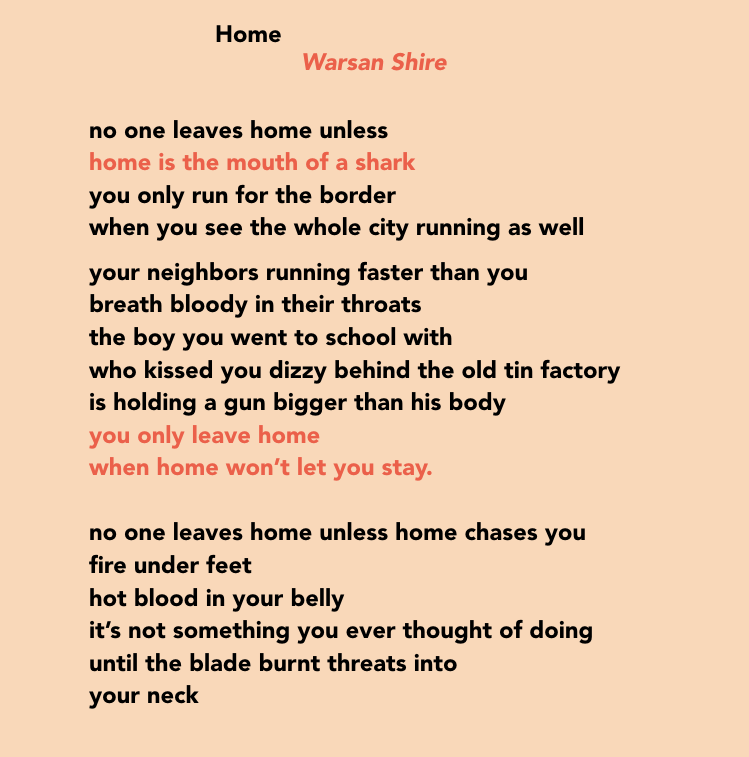




“I have my mother’s mouth and my father’s eyes; on my face they are still together”
Warsan Shire’s “Teaching my mother how to give birth” begins with these lines. I read these lines several times, thinking what depth of tolerance, what fire, it must take to tear such hope out of the depths of rupture. Shire’s writing is marked by this unflinching, unapologetic savagery - she embraces this language of assault, like Dhasal. I share this poem today, because of its theme, of course, but because I want to reaffirm the importance of a militant civil disobedience. The time for quiet niceties are over. The gloves are off.
Recently a comrade in poetry shared this poem. I was grateful to revisit this piece of writing. The times we live in turn this piece of writing into an urgent memo. Shire’s poetry burst on the scene when world over, the question of refugees, immigrants and territoriality was taking an ugly turn. As nation-states draw borders with greater conviction, artists continued to blur them. Her voice cuts across rational, policy-level, economic and developmental discourse about stronger boundaries. Recently Mahua Moitra, the firebrand TMC Lok Sabha MP quoted the legendary Agha Shahid Ali, in her vehement opposition of the Indian government’s agenda:
“My memory comes in the way of your history”
The poetry of Warsan Shire is this assertion of memory and subalternity.


